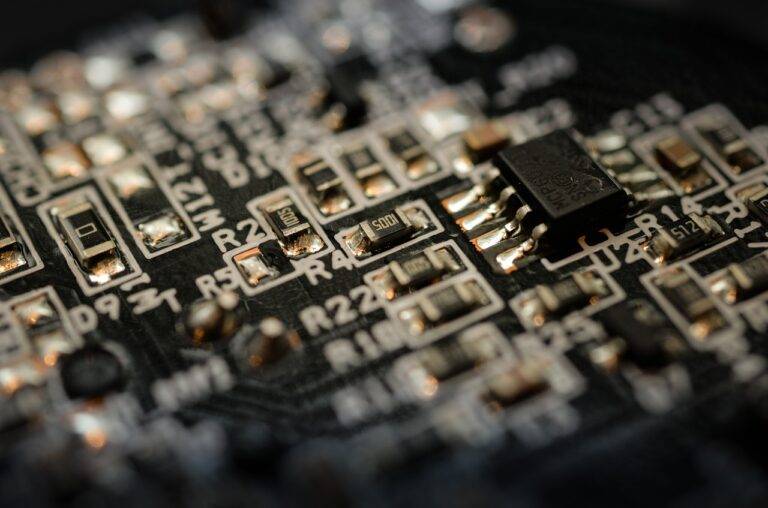The Potential of Blockchain in Improving Transparency in Real Estate Transactions
Blockchain technology is a decentralized, secure system that enables the recording and verification of transactions across a network of computers. At its core, blockchain acts as a distributed digital ledger that stores information in blocks linked together in a chain. Each block contains a timestamp and transaction data, making it transparent, tamper-proof, and easily accessible to authorized parties in real-time.
One of the key features of blockchain technology is its consensus mechanism, which ensures that all participants in the network agree on the validity of transactions before they are added to the ledger. This consensus mechanism eliminates the need for intermediaries or central authorities, reducing the risk of fraud and increasing the efficiency of transactions. Additionally, blockchain technology offers enhanced security through encryption and validation processes, making it a promising solution for various industries seeking to streamline processes and enhance trust in transactions.
Current Challenges in Real Estate Transactions
One major challenge in real estate transactions is the lack of transparency and trust between parties. Due to the traditional paper-based processes and intermediary involvement in transactions, there is often a lack of visibility into the entire process, leading to delays and disputes. This opacity can cause inefficiencies, increase costs, and make it difficult for all parties involved to have a clear understanding of the transaction.
Additionally, the risk of fraud and cyber threats is a pressing issue in real estate transactions. With sensitive financial and personal information being exchanged during the process, there is a high susceptibility to fraudulent activities such as identity theft, wire transfer fraud, and unauthorized access to confidential data. This not only jeopardizes the security of the transaction but also erodes trust between buyers, sellers, and other stakeholders in the real estate industry.
• Lack of transparency and trust between parties
• Traditional paper-based processes and intermediary involvement lead to a lack of visibility
• Delays and disputes often occur due to the opacity of the process
• Inefficiencies, increased costs, and difficulty in understanding the transaction for all parties involved
• Risk of fraud and cyber threats in real estate transactions
• Sensitive financial and personal information exchanged makes it susceptible to fraudulent activities
• Identity theft, wire transfer fraud, unauthorized access to confidential data are common risks
• Jeopardizes security of the transaction and erodes trust among buyers, sellers, and stakeholders
Benefits of Implementing Blockchain in Real Estate
Blockchain technology in real estate brings transparency and security to transactions. By utilizing a decentralized ledger system, all parties involved can access real-time updates on property ownership, contracts, and historical data. This helps in reducing the risk of fraud and errors, as the information stored on the blockchain cannot be altered without consensus from all participants, ensuring a higher level of trust in the transaction process.
Furthermore, implementing blockchain in real estate can streamline the process of property transactions by eliminating the need for intermediaries such as brokers, lawyers, and banks. Smart contracts can be used to automate and execute terms of the agreement once certain conditions are met, reducing the time and cost involved in completing a transaction. This not only speeds up the process but also minimizes the potential for disputes arising from misunderstandings or delays in payment settlements.
What is blockchain technology?
Blockchain is a decentralized, distributed ledger technology that securely records transactions across a network of computers.
What are some current challenges in real estate transactions?
Some challenges in real estate transactions include fraud, lack of transparency, lengthy processes, and high transaction costs.
How can implementing blockchain benefit the real estate industry?
Implementing blockchain in real estate can increase transparency, reduce fraud, streamline processes, lower costs, and improve security.
Can blockchain help in verifying property ownership?
Yes, blockchain can help in verifying property ownership by providing a tamper-proof record of ownership history.
How can blockchain technology improve the speed of real estate transactions?
By automating processes and eliminating the need for intermediaries, blockchain technology can significantly speed up real estate transactions.
Is blockchain technology secure for real estate transactions?
Yes, blockchain technology is secure for real estate transactions as it employs cryptographic techniques to secure data and prevent tampering.
Will implementing blockchain in real estate transactions result in cost savings?
Yes, implementing blockchain in real estate transactions can result in cost savings by reducing the need for intermediaries and streamlining processes.





